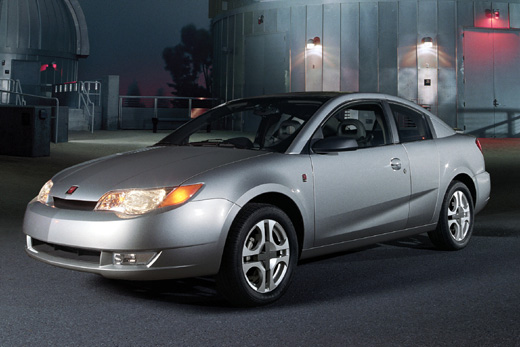Toyota vs. GM: Not Angels vs. Satan
By Peter Brown
Automotive News / June 27, 2005
Let's talk about a special kind of bigotry.
The globe-trotting New York Times columnist Thomas Friedman wants General Motors to go bankrupt and Toyota to run things.
Why? Toyota sells hybrid cars, which Friedman argues will save the world from the disaster caused by the deplorable GM.
His argument is a pure expression of anti-American, pro-Anybody Else nonsense. It's a romantic fantasy that "those others" are on the side of the angels, while our guys are a bunch of dunderheads.
Check your data, Tom. Toyota is doubling the size of its V-8 engine plant in Alabama to make 300,000 big V-8s for the huge new pickups to be assembled in Texas. And Toyota already has a lineup of heavy, gas-guzzling trucks and SUVs (Land Cruiser, LX 470, Sequoia, GX 470, 4Runner, made chiefly in Japan) that is more than a match for GM or any other automaker, domestic or import.
![Image]()
Here's what Friedman wrote: "If I am rooting for General Motors to go bankrupt and be bought out by Toyota, does that make me a bad person?
"... Having Toyota take over General Motors - which based its business strategy on building gas-guzzling cars, including the idiot Hummer, scoffing at hybrid technology and fighting congressional efforts to impose higher mileage standards on U.S. automakers - would not only be in America's economic interest, it would also be in America's geopolitical interest."
With the angels or Satan?
Friedman argues that hybrids with electric-vehicle plug-ins (which nobody offers) added to ethanol burners (which GM and others offer) could end up giving us hundreds of miles per gallon of gasoline, thus slowing global warming, cleaning the environment and giving America the energy independence it needs to stop supporting bad regimes.
I presume he thinks it would reduce the need for things like the Iraq invasion - an invasion he supported, by the way.
In fact, America does need a real energy policy to reduce fuel consumption dramatically, and for the reasons Friedman lists.
![Image]()
But is Toyota on the side of the angels and GM siding with Satan? Come on. They're both just car companies, trying to make a buck by giving customers what they want. That's why Toyota's San Antonio plant will crank out those new Tundra pickups, bigger and heavier than the Tundras they'll replace.
A dozen years ago, GM was caught woefully short of SUVs as it invested heavily in sedans and coupes. Since then, GM has had to catch up to the market by building truck capacity. GM certainly didn't "base its business strategy on building gas-guzzling cars." Where was Friedman when GM took the risk to introduce all-electric cars?
Meanwhile, just like GM, Toyota opposes higher fuel economy standards. In fact, no automaker can substantially beat federal corporate average fuel economy standards. The American marketplace forces every automaker to devote its improvements in efficiency to performance, not to fuel consumption.
Example: Since Toyota started selling its nifty hybrid Prius in 2000, the company's truck CAFE has fluctuated in the range of 21.8 to 22.7 mpg, while Toyota's U.S. truck sales rose from 646,491 in 2000 to 1,005,841 in 2004.
For every pint of gasoline saved by a Prius, several gallons have been burned in high-tonnage Toyota trucks.
Surely GM's leaders have missed the boat on some of what consumers want (just as they missed the early boat on SUVs and minivans), while Toyota continues skillfully to increase sales in America, largely by selling more trucks.
And GM has plenty of fuel-efficient models. What GM needs is more cars that buyers crave. Some of those models will be hybrids.
Friedman's column made me recall a conversation I had with a Sierra Club official in Washington some years ago. The Sierra Club fellow excoriated all the domestic automakers for their terrible fuel economy (which then, as now, was exactly what the law allowed).
How about the Germans, I asked.
Uh, the Germans, he said, pausing, "use better technology."
Actually, that's not true. BMW and Mercedes-Benz simply have paid the fines for failing to meet CAFE and gas-guzzler laws. The U.S. Big 3 always have met those laws, even when they could have earned more profit in flouting them.
This is not to criticize Toyota or to let GM off the hook. They're all battling for customers and dollars, and Toyota is doing it better. But the reflexive anti-U.S. bias is based on a fantasy of the virtues of the lesser-known.
No, Thomas Friedman is not a bad person. But when he parachutes into this debate, he should spend more time on the ground. His romantic idealization of Toyota might hurt somebody.
Link: http://www.autonews.com/article.cms?articleId=53608
![Image]()
By Peter Brown
Automotive News / June 27, 2005
Let's talk about a special kind of bigotry.
The globe-trotting New York Times columnist Thomas Friedman wants General Motors to go bankrupt and Toyota to run things.
Why? Toyota sells hybrid cars, which Friedman argues will save the world from the disaster caused by the deplorable GM.
His argument is a pure expression of anti-American, pro-Anybody Else nonsense. It's a romantic fantasy that "those others" are on the side of the angels, while our guys are a bunch of dunderheads.
Check your data, Tom. Toyota is doubling the size of its V-8 engine plant in Alabama to make 300,000 big V-8s for the huge new pickups to be assembled in Texas. And Toyota already has a lineup of heavy, gas-guzzling trucks and SUVs (Land Cruiser, LX 470, Sequoia, GX 470, 4Runner, made chiefly in Japan) that is more than a match for GM or any other automaker, domestic or import.

Here's what Friedman wrote: "If I am rooting for General Motors to go bankrupt and be bought out by Toyota, does that make me a bad person?
"... Having Toyota take over General Motors - which based its business strategy on building gas-guzzling cars, including the idiot Hummer, scoffing at hybrid technology and fighting congressional efforts to impose higher mileage standards on U.S. automakers - would not only be in America's economic interest, it would also be in America's geopolitical interest."
With the angels or Satan?
Friedman argues that hybrids with electric-vehicle plug-ins (which nobody offers) added to ethanol burners (which GM and others offer) could end up giving us hundreds of miles per gallon of gasoline, thus slowing global warming, cleaning the environment and giving America the energy independence it needs to stop supporting bad regimes.
I presume he thinks it would reduce the need for things like the Iraq invasion - an invasion he supported, by the way.
In fact, America does need a real energy policy to reduce fuel consumption dramatically, and for the reasons Friedman lists.

But is Toyota on the side of the angels and GM siding with Satan? Come on. They're both just car companies, trying to make a buck by giving customers what they want. That's why Toyota's San Antonio plant will crank out those new Tundra pickups, bigger and heavier than the Tundras they'll replace.
A dozen years ago, GM was caught woefully short of SUVs as it invested heavily in sedans and coupes. Since then, GM has had to catch up to the market by building truck capacity. GM certainly didn't "base its business strategy on building gas-guzzling cars." Where was Friedman when GM took the risk to introduce all-electric cars?
Meanwhile, just like GM, Toyota opposes higher fuel economy standards. In fact, no automaker can substantially beat federal corporate average fuel economy standards. The American marketplace forces every automaker to devote its improvements in efficiency to performance, not to fuel consumption.
Example: Since Toyota started selling its nifty hybrid Prius in 2000, the company's truck CAFE has fluctuated in the range of 21.8 to 22.7 mpg, while Toyota's U.S. truck sales rose from 646,491 in 2000 to 1,005,841 in 2004.
For every pint of gasoline saved by a Prius, several gallons have been burned in high-tonnage Toyota trucks.
Surely GM's leaders have missed the boat on some of what consumers want (just as they missed the early boat on SUVs and minivans), while Toyota continues skillfully to increase sales in America, largely by selling more trucks.
And GM has plenty of fuel-efficient models. What GM needs is more cars that buyers crave. Some of those models will be hybrids.
Friedman's column made me recall a conversation I had with a Sierra Club official in Washington some years ago. The Sierra Club fellow excoriated all the domestic automakers for their terrible fuel economy (which then, as now, was exactly what the law allowed).
How about the Germans, I asked.
Uh, the Germans, he said, pausing, "use better technology."
Actually, that's not true. BMW and Mercedes-Benz simply have paid the fines for failing to meet CAFE and gas-guzzler laws. The U.S. Big 3 always have met those laws, even when they could have earned more profit in flouting them.
This is not to criticize Toyota or to let GM off the hook. They're all battling for customers and dollars, and Toyota is doing it better. But the reflexive anti-U.S. bias is based on a fantasy of the virtues of the lesser-known.
No, Thomas Friedman is not a bad person. But when he parachutes into this debate, he should spend more time on the ground. His romantic idealization of Toyota might hurt somebody.
Link: http://www.autonews.com/article.cms?articleId=53608





